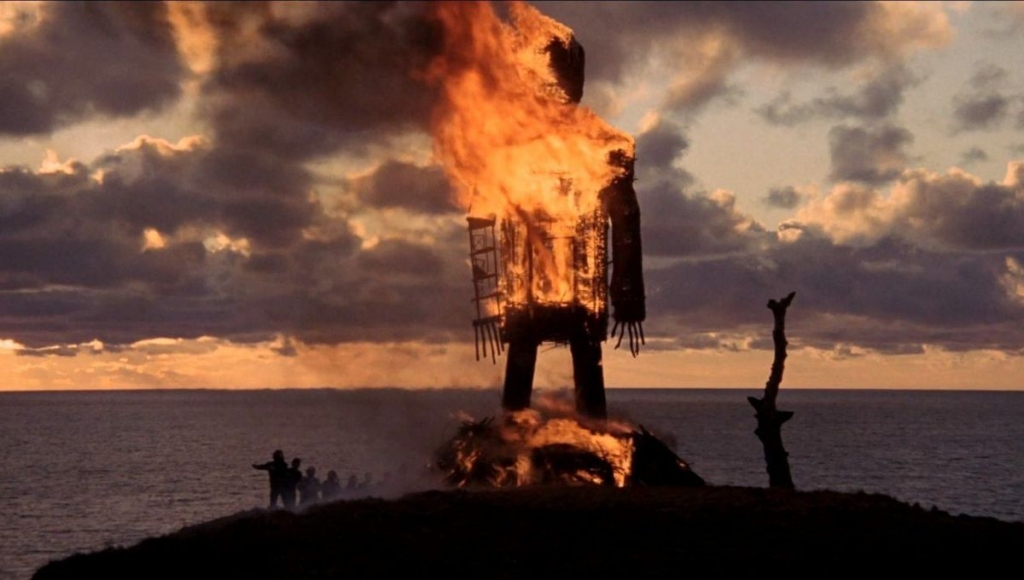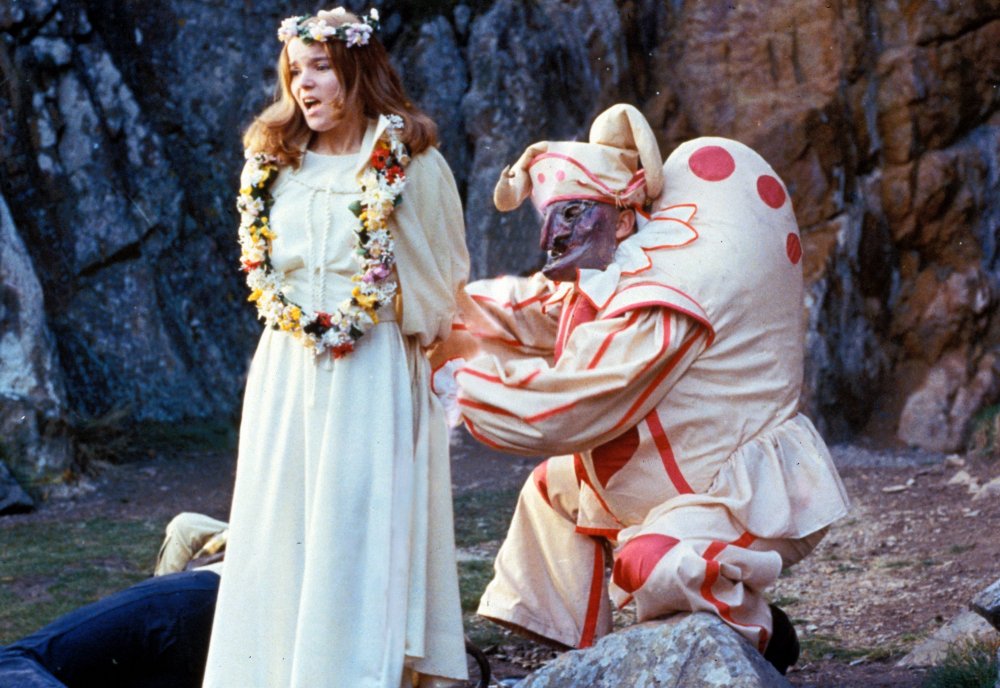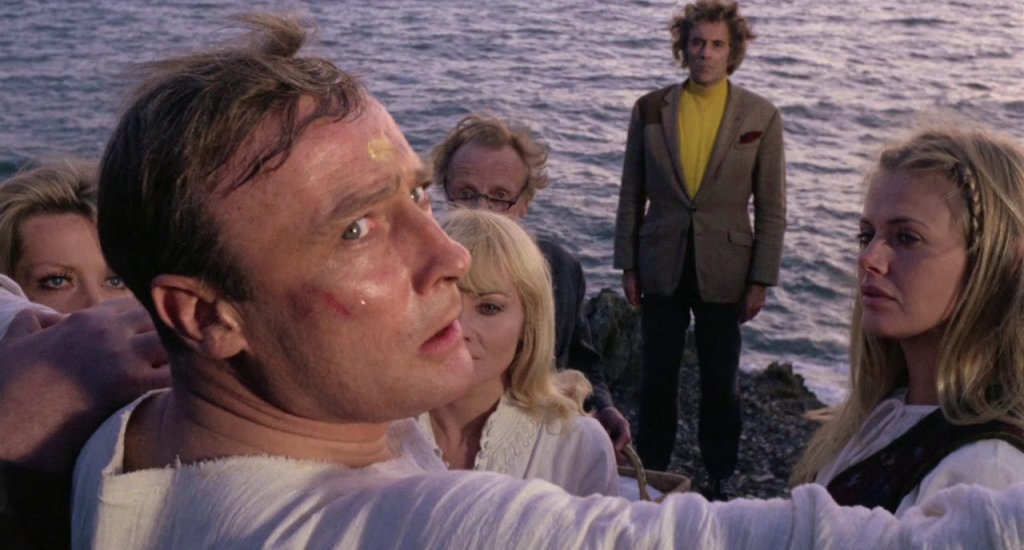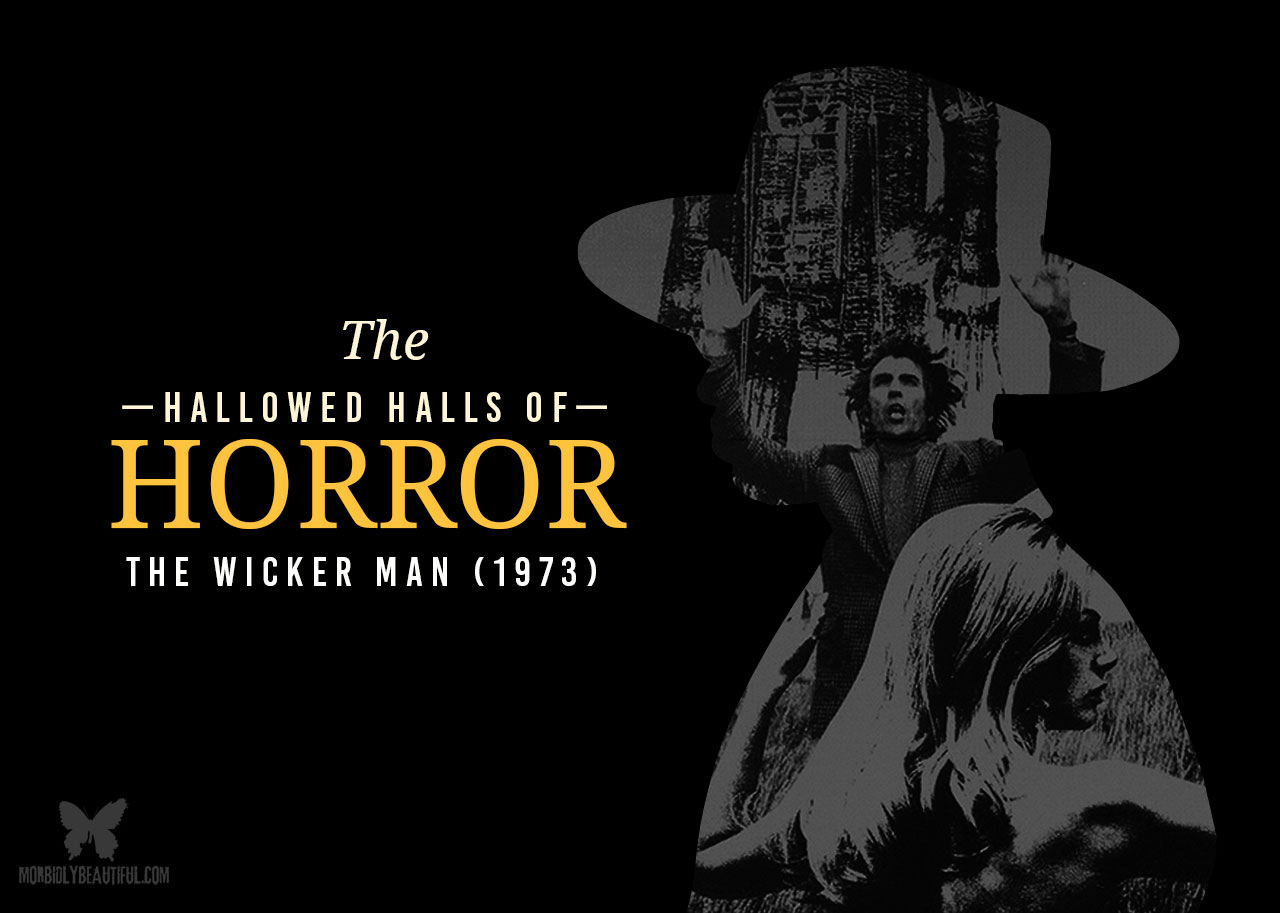Hailed as the Citizen Kane of horror, 1973’s “The Wicker Man” is one of the few horror movies of the past to gain critical praise upon its release.

If you’re part of a younger generation who saw the 2006 version of The Wicker Man starring an infamously unhinged Nicolas Cage, you may think you have an idea what to expect from the original 1973 film of the same name. But nothing could be further from the truth.
While the remake takes some inspiration from its predecessor, it veers off in wildly different directions. And while 2006’s The Wicker Man is a campy cult classic “beloved” for how entertainingly bad it is, the original The Wicker Man is a hugely influential, critically acclaimed masterpiece that has helped shaped many modern films — not the least of which is Ari Aster’s folk horror film Midsommar.
Hopefully, your history classes have taught you about the violent rise of Christianity. But in case you’ve forgotten, or were taught differently, Christians have a long history of overthrowing other religions and burying or reappropriating that religion’s practices. In the States, we might be best acquainted with this in terms of the conquistadors conquering native societies and leaving the people with a terrible choice: convert or be killed. However, things were a bit different in Europe.
Depending on the region — and skin tones of the people who inhabited that region — different religious practices would be twisted to fit a more Christian mold.

When this happened, the core elements of the pagan religion remained, including ritualistic practices like animal sacrifice. Temples were left intact, but the idols within them were destroyed and replaced with saints. The slaughtering of animals was allowed to continue, but only in the name of the Christian God. In these cases, the culture evolved in a slower, more organic way over time.
The victims of the northern crusades weren’t so lucky. Christianity was implemented with force. And though there were many riots and attempted uprisings, brutality kept most people in line. Eventually, the people were fully converted, and their rituals and languages were purposefully lost.
While Christianity might still have a stronghold in a large portion of the world, occultism is making a major comeback. As people (especially in America) dig further into their roots and, in many cases, their Celtic heritage, many have become aware that quite a few Christian holidays and practices were lifted directly from pagans. There’s an entire subset of TikTok that is devoted to witchcraft and manifestation. Pockets of people are hoping to recreate an old world, investing themselves in the wisdom of cultures that were able to survive the purge.
This provides some important historical context for the events that transpire in The Wicker Man.

The film revolves around the community of Summerisle, a people who have managed to pull away from Christian society. The core conflict in the film arises between the pagan community and the devout Christian detective, Neil Howie, who is called to the island to investigate the disappearance of a missing child. Howie is immediately rattled by the stark cultural differences, especially the open and unapologetic sexuality of the Summerisle residents.
Howie is sworn to follow the Good Book, so much so that he is saving himself for marriage. Praying to pagan Celtic gods and letting children play with the maypole is one thing. But uninhibited sexual liberation and teaching children about sexuality and phallic structures is another thing entirely.
For the most part, the islanders don’t seek to bate Howie or make him intentionally uncomfortable. Their lifestyle and belief structure simply varies wildly from his, and they aren’t going to change their way of life for his sake. Truly, Howie is the one who seems authoritative and unwilling to accept this other way of life. The people do not pressure him to adjust to their way of living. Yet he still reacts negatively and continues to try to disrupt anything related to sex or sexual organs.
Summerisle doesn’t even seem to follow the normal laws of the patriarchal society Howie thrives in.

It is not just men who are openly sexually, but the women as well — most evidenced by the innkeeper’s daughter, Willow, who tries to seduce Howie.
Horror itself, especially in anti-sex America, is closely tied to sexuality. The kind of sex normally displayed in horror films is just used to set up a kill. We’ve been taught since the slasher age that anyone who has sex on screen has to die, with generally more sadistic torture reserved for sexual women.
But here, Willow’s nakedness and desire do not result in her demise. She enjoys her body and carnal pleasure, and this is a space where she is safe to do so. It is something Howie can’t seem to wrap his head around, even as the end nears and he catches her touching herself in the tub. She doesn’t stop when he enters, unashamed of her body and wants.
Though this might be a sillier watch for viewers accustomed to modern horror, it’s important to note how much of today’s horror owes a great deal to this essential classic.

One of the film’s biggest influences on modern cinema comes from its striking visuals, specifically the costumes worn by the townsfolk.
You can see this influence, not just in obvious places like 2019’s Midsommar, but also in films like Hostel 2 — which featured a similar pagan festival with residents dressed up in medieval garb, dancing around a pole — and in the animal masks worn by the killers in You’re Next and the ones featured in 2019’s Pet Sematary remake.
There is something unsettling about these innocent, childish designs being used to distort features and haunt backgrounds.
Technically speaking, The Wicker Man is a beautiful achievement on multiple levels.

The acting is sharp and believable — from Edward Woodward’s confused and manic police sergeant, to Christopher Lee’s enigmatic lord of the island. A rare daylight horror film, The Wicker Man utilizes natural lighting to its advantage and showcases vibrant, sweet colors in clothing and decor. And then there’s, perhaps, the most widely praised aspect of the film: its mesmerizing soundtrack.
In order to immerse the audience into the pagan society, original and traditional folk songs play throughout — not as a background music but as an integral part of the narrative designed to move the story forward. By utilizing songs connected to pagan rituals and life, the movie grounds feels grounded in its efforts to confront the toxicity of Christianity.
The film also excels at illuminating the true nature of native people whose beliefs and customs have had an undeniable influence on modern culture, no matter how hard early colonizers tried to erase them from history. As modern societies continue to explore their roots and uncover that which time has left behind, hopefully we can give new life to cultures and traditions previously believed to be dead and buried.
In much the same way, my hope is that modern audiences continue to explore the roots of cinema, paying respect to the films that helped shaped the genre into what it is today — films which still hold great significance. It is, after all, why I love writing this column.














Follow Us!